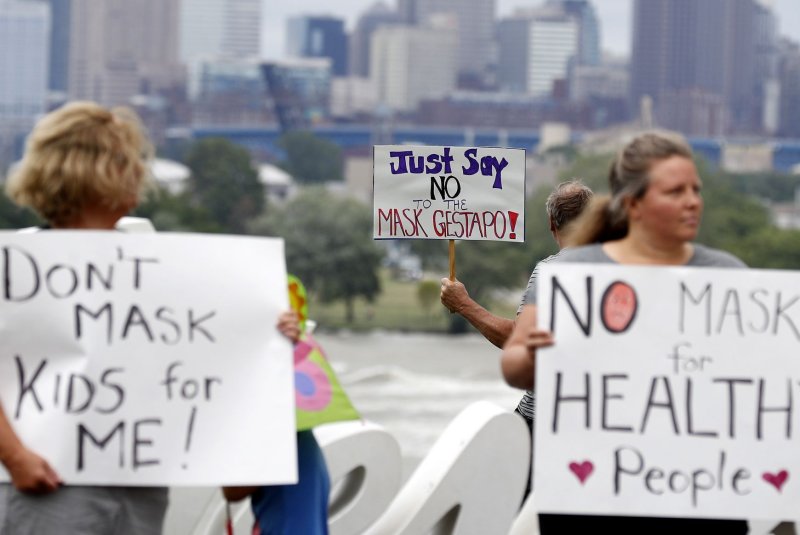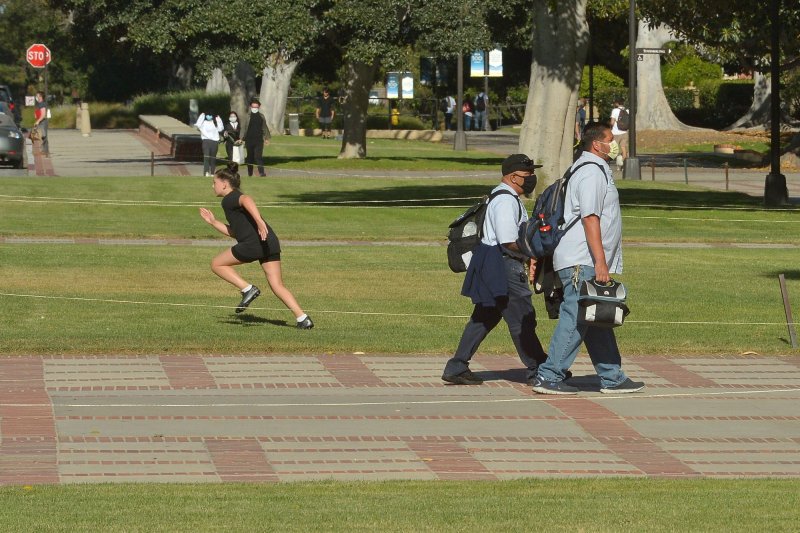Don't be fooled by the "cancel culture" wars: Corporate power is the real force behind racism
Elite infighting about "free speech" and "diversity" won't end racism — or challenge corporate capitalism

Social media restricted speech and cancel culture censorship concept (Getty Images)
CHRIS HEDGES
JULY 13, 2020
This article was originally published by Scheerpost. Used by permission.
The "cancel culture" — the phenomenon of removing or canceling people, brands or shows from the public domain because of offensive statements or ideologies — is not a threat to the ruling class. Hundreds of corporations, nearly all in the hands of white executives and white board members, enthusiastically pumped out messages on social media condemning racism and demanding justice after George Floyd was choked to death by police in Minneapolis. Police, which along with the prison system are one of the primary instruments of social control over the poor, have taken the knee, along with Jamie Dimon, the chief executive of the serially criminal JPMorgan Chase, where only 4 percent of the top executives are Black. Jeff Bezos, the richest man in the world whose corporation, Amazon, paid no federal income taxes last year and who fires workers that attempt to unionize and tracks warehouse laborers as if they were prisoners, put a "Black Lives Matter" banner on Amazon's home page.
The rush by the ruling elites to profess solidarity with the protesters and denounce racist rhetoric and racist symbols, supporting the toppling of Confederate statues and banning the Confederate flag, are symbolic assaults on white supremacy. Alone, these gestures will do nothing to reverse the institutional racism that is baked into the DNA of American society. The elites will discuss race. They will not discuss class.
Advertisement:
We must be wary of allowing those wielding the toxic charge of racism, no matter how well intentioned their motives, to decide who has a voice and who does not. Public shaming and denunciation, as any student of the Russian, French or Chinese revolutions knows, is one that leads to absurdism and finally despotism. Virulent racists, such as Richard Spencer, exist. They are dangerous. But racism will not end until we dismantle a class system that was created to empower oligarchic oppression and white supremacy. Racism will not end until we defund the police and abolish the world's largest system of mass incarceration. Racism will not end until we invest in people rather than systems of control. This means reparations for African Americans, the unionization of workers, massive government jobs programs, breaking up and nationalizing the big banks along with the for-profit health services, transportation sector, the internet, privatized utilities and the fossil fuel industry, as well as a Green New Deal and the slashing of our war expenditures by 75 percent.
The politically correct speech and symbols of inclusiveness, without a concerted assault on corporate power, will do nothing to change a system that by design casts the poor and working poor, often people of color, aside — Karl Marx called them "surplus labor" — and forces them into a life of misery and a brutal criminal caste system.
The cancel culture, with its public shaming on social media, is the boutique activism of the liberal elites. It allows faux student radicals to hound and attack those deemed to be racist or transphobic, before these "radicals" graduate to work for corporations such as Goldman Sachs, which last year paid $9 million in fines to settle federal allegations of racial and gender pay bias. Self-styled Marxists in the academy have been pushed out of economic departments and been reborn as irrelevant cultural and literary critics, employing jargon so obscure as to be unreadable. These "radical" theorists invest their energy in linguistic acrobatics and multiculturalism, with branches such as feminism studies, queer studies and African-American studies. The inclusion of voices often left out of the traditional academic canon certainly enriches the university. But multiculturalism, moral absolutism and the public denunciations of apostates, by themselves, too often offer escape routes from critiquing and attacking the class structures and systems of economic oppression that exclude and impoverish the poor and the marginal.
The hedge fund managers, oligarchs and corporate CEOs on college trustee boards don't care about Marxist critiques of Joseph Conrad. They do care if students are being taught to dissect the lies of the neoliberal ideology used as a cover to orchestrate the largest transference of wealth upwards in American history.
The cancel culture, shorn of class politics, is the parlor game of the overeducated. If we do not examine, as Theodor Adorno wrote, the "societal play of forces that operate beneath the surface of political forms," we will be continually cursed with a more ruthless and sophisticated form of corporate control, albeit one that is linguistically sensitive and politically correct.
"Stripped of a radical idiom, robbed of a utopian hope, liberals and leftists retreat in the name of progress to celebrate diversity," historian Russell Jacoby writes. "With few ideas on how a future should be shaped, they embrace all ideas. Pluralism becomes a catchall, the alpha and omega of political thinking. Dressed up as multicultural, it has become the opium of disillusioned intellectuals, the ideology of an era without an ideology."
Advertisement:
The cudgel of racism, as I have experienced, is an effective tool to shut down debate. Students for Justice in Palestine organizations, which almost always include Jewish students, are being banned on college campuses in the name of fighting racism. Activists in these outlawed groups are often barred from holding any student leadership positions on campus. Professors that dare to counter the Zionist narrative, such as the Palestinian American scholar Steven Salaita, have had job offers rescinded, been fired or denied tenure and dismissed. Norman Finkelstein, one of the most important scholars on the Israel-Palestine conflict, has been ruthlessly targeted by the Israel lobby throughout his career, making it impossible for him to get tenure or academic appointments. Never mind that he is not only Jewish but the son of Holocaust survivors. Jews, in this game, are branded as racists, and actual racists, such as Donald Trump, because they back Israel's refusal to recognize Palestinian rights, are held up as friends of the Jewish people.
I have long been a target of the Israeli lobby. The lobby, usually working through Hillel Houses on college campuses, which function as little more than outposts of the American Israel Public Affairs Committee (AIPAC), does not attempt to address my enumeration of the war crimes committed by Israel, many of which I witnessed, the egregious flouting by Israel of international law, exacerbated by the plans to annex up to 30 percent of the West Bank, or the historical record ignored and distorted by the lobby to justify Jewish occupation of a country that from the 7th century until 1948 was Muslim. The lobby prefers not to deal in the world of facts. It misuses the trope of anti-Semitism to ensure that those who speak up for Palestinian rights and denounce Israeli occupation are not invited to events on the Israel-Palestine conflict, or are disinvited to speak after invitations have been sent out, as happened to me at the University of Pennsylvania, among other venues.
It does not matter that I spent seven years in the Middle East, or that I was the Middle East bureau chief for The New York Times, living for weeks at a time in the Israel-occupied territories. It does not matter that I speak Arabic. My voice and the voices of those, especially Palestinians, who document the violations of Palestinian civil rights are canceled out by the mendacious charge that we are racists. I doubt most of the college administrators who agree to block our appearances believe we are racists, but they don't also want the controversy. Zionism is the cancel culture on steroids.
The Israel lobby, whose interference in our electoral process dwarfs that of any other country, including Russia, is now attempting to criminalize the activities of those, such as myself, who support the Boycott, Divestment and Sanctions (BDS) movement. The lobby, with its huge financial clout, is pushing state legislatures, in the name of fighting anti-Semitism, to use anti-boycott laws and executive orders to punish companies and individuals that promote BDS. Twenty-seven states have so far enacted laws or policies that penalize businesses, organizations and individuals for supporting BDS.
The debate about the excesses of cancel culture was most recently ignited by a letter signed by 153 prominent and largely privileged writers and intellectuals in Harper's Magazine, a publication for educated, white liberals. Critics of the letter argue, correctly, that "nowhere in it do the signatories mention how marginalized voices have been silenced for generations in journalism, academia, and publishing." These critics also point out, correctly, that signatories include those, such as New York Times columnist David Brooks and Malcolm Gladwell, with access to huge media platforms and who face no danger of being silenced. They finally note that a few of the signatories are the most vicious proponents of the Zionist cancel culture, including New York Times editor Bari Weiss, who led campaigns while at Columbia University to destroy the careers of Arab professors; literary scholar Cary Nelson, who was one of those who denounced the Palestinian American scholar Salaita as a racist; and political scientist Yascha Mounk, who has attacked Rep. Ilhan Omar as an anti-Semite.
I find the cancel culture and its public denunciations as distasteful as those who signed the letter. But these critics are battling a monster of their own creation. The institutional and professional power of those targeted by the Harper's letter is insignificant, especially when set against that of the signatories or the Israel lobby. Those singled out for attack pose little threat to the systems of entrenched power, which the signatories ironically represent, and indeed are more often its victims. I suspect this is the reason for the widespread ire the letter provoked.
The most ominous threats to free speech and public debate do not come from the cancel culture of the left, which rarely succeeds in removing its targets from power, despite a few high-profile firings such as James Bennet, who oversaw a series of tone-deaf editorial decisions as the opinion page editor at the New York Times. These corporate forces, which assure us that Black Lives Matter, understand that the left's witch hunts are a harmless diversion.
Corporations have seized control of the news industry and turned it into burlesque. They have corrupted academic scholarship. They make war on science and the rule of law. They have used their wealth to destroy our democracy and replace it with a system of legalized bribery. They have created a world of masters and serfs who struggle at subsistence level and endure crippling debt peonage. The commodification of the natural world by corporations has triggered an ecocide that is pushing the human species closer and closer towards extinction. Anyone who attempts to state these truths and fight back was long ago driven from the mainstream and relegated to the margins of the internet by Silicon Valley algorithms. As cancel culture goes, corporate power makes the Israel lobby look like amateurs.
The current obsession with moral purity, devoid of a political vision and incubated by self-referential academics and educated elites, is easily co-opted by the ruling class who will say anything, as long as the mechanisms of corporate control remain untouched. We have enemies. They run Silicon Valley and sit on corporate boards. They make up the two ruling political parties. They manage the war industry. They chatter endlessly on corporate-owned airwaves about trivia and celebrity gossip. Our enemies are now showering us with politically correct messages. But until they are overthrown, until we wrest power back from our corporate masters, the most insidious forms of racism in America will continue to flourish.
CHRIS HEDGES
is the former Middle East bureau chief of the New York Times, a Pulitzer Prize winner, and a columnist at Truthdig. He is the author of several books, including "War Is a Force That Gives Us Meaning."MORE FROM CHRIS HEDGES

























